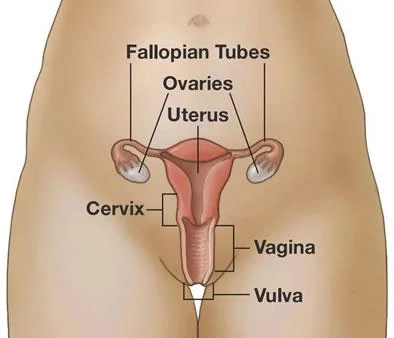What is the Uterus?

Symptoms of Uterine Conditions
Various conditions can affect the uterus, leading to different symptoms, including:
- Abnormal or heavy menstrual bleeding
- Irregular menstrual cycles
- Severe menstrual cramps (dysmenorrhea)
- Pelvic pain or pressure
- Pain during sexual intercourse
- Difficulty in conceiving (infertility)
- Frequent urination or constipation (due to pressure on nearby organs)
- Unexplained fatigue (in case of chronic blood loss)
If you experience these symptoms persistently, it is important to consult your gynecologist for proper diagnosis and management.
Procedures or Treatments for Uterine Conditions
Treatment depends on the specific condition affecting the uterus. Common procedures and treatments include:
Medication: Hormonal therapy or pain relievers for managing symptoms like heavy bleeding or cramps.
Myomectomy: Surgical removal of fibroids while preserving the uterus.
Hysterectomy: Surgical removal of the uterus, recommended in severe cases like cancer or uncontrollable bleeding.
Endometrial Ablation: Destruction of the uterine lining to reduce heavy bleeding.
Uterine Artery Embolization (UAE): Minimally invasive procedure to shrink fibroids by blocking their blood supply.
Fertility Treatments: In cases where uterine issues cause infertility, assisted reproductive techniques may be advised.
Always consult your doctor to understand the most appropriate treatment for your specific diagnosis.
Prevention of Uterine Problems
While not all uterine conditions are preventable, some lifestyle measures may help reduce risks:
- Maintaining a healthy weight
- Eating a balanced diet rich in vegetables, fruits, and whole grains
- Regular exercise to maintain hormonal balance
- Timely treatment of menstrual irregularities
- Avoiding smoking and excessive alcohol consumption
- Regular gynecological check-ups for early detection and management
Benefits of a Healthy Uterus
A healthy uterus is essential for:
- Regular and pain-free menstrual cycles
- Optimal reproductive health and fertility
- Supporting healthy pregnancies and fetal development
- Overall hormonal balance in the female body
Types of Uterine Conditions
Some common types of uterine conditions include:
- Uterine Fibroids (Leiomyomas): Non-cancerous growths within the uterine wall.
- Endometriosis: Growth of uterine lining tissue outside the uterus.
- Adenomyosis: Thickening of the uterine walls due to endometrial tissue growing into the muscle.
- Uterine Polyps: Small benign growths attached to the inner wall of the uterus.
- Uterine Prolapse: When the uterus slips down into the vaginal canal.
- Uterine Cancer: Cancer that develops in the lining or muscles of the uterus.
- Congenital Anomalies: Structural abnormalities of the uterus present from birth, such as septate or bicornuate uterus.
